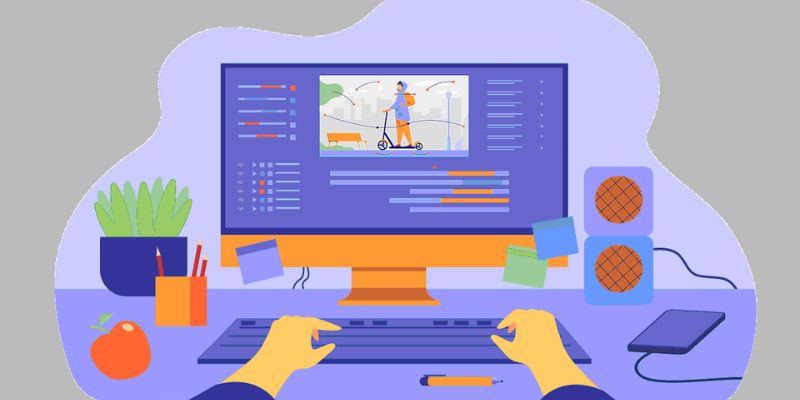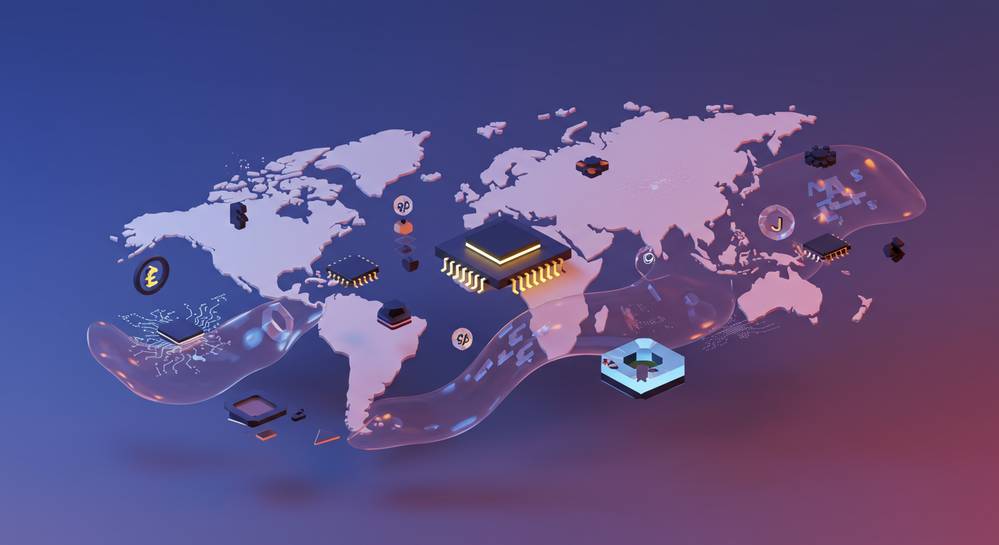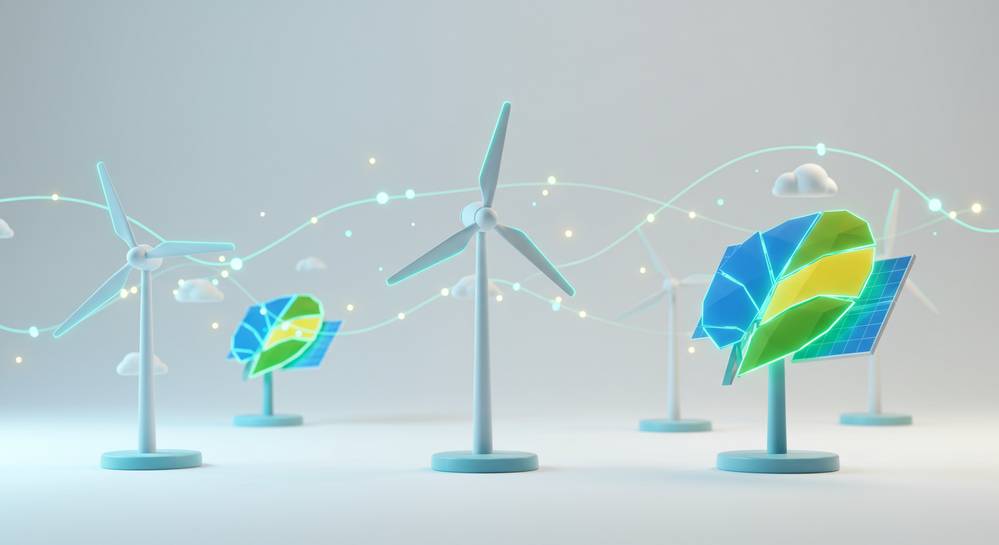Predictions for the future of computer technology keep us on our toes. What waits around the next digital corner? Let’s dive into a world where quantum leaps bind with artificial smarts. Each tick of the clock nudges us closer to a reality brimful with quantum codes that no one can crack and learns on its own. And guess what? It’s not just about speedier gadgets, but safe and lasting tech that cares. Buckle up, as we zip through the quantum realm, chat with clever machines, catch waves on super-fast networks, and forge tech that’s kind and tough. This journey isn’t just a wild guess; it’s the map to our tech-soaked future.
The Quantum Leap: How Quantum Computing Developments Will Shape Our Future
The rise of quantum supremacy and its implications
Picture a computer that makes today’s smartest machines look like old calculators. That’s quantum computing for you, a brain-like power in a box. It uses bits that are both 0 and 1 at the same time. Imagine putting on glasses that let you see new colors. That’s like the new work quantum computers will do.
A big win of quantum computing was Google’s quantum supremacy feat. They proved a quantum computer could beat a traditional one in a specific task. Think of it like a drag race where a space rocket races a bike. The rocket zooms by, leaving the bike in the dust. That’s what quantum computers will start doing in tough problems like simulating molecules for new drugs or cracking codes.
Quantum cryptography: The unbreakable code
Next up is quantum cryptography. This is like writing a secret message that only your friend can read. Today, hackers can break codes and read our messages. But quantum cryptography uses the rules of quantum physics to make codes no one can break, not even with a quantum computer. It’s like giving your friend the only key to a treasure box.
It works using particles of light called photons. Imagine you and your friend have a special string that changes color every time you touch it. If a sneaky person tries to touch the string, it changes in a way you both can see. That’s like photons telling you if a message is safe or if someone else saw it.
These quantum jumps mean we’re heading towards a future where computers do things that blow our minds. They’ll make new medicines, keep our secrets safe, and solve puzzles we can’t crack now. For kids who dream of being heroes, learning quantum computing could be their superpower—it’s the next big adventure in computer technology.

Artificial Intelligence and Machine Learning: Next Frontier in Tech Evolution
Artificial Intelligence evolution and future AI applications
Think about robots and smart helpers. That’s where we see artificial intelligence (AI) today. But soon, AI will do much more! It will help us make faster and smarter choices. Imagine a world where AI could plan a city that has no traffic jams. Cool, right? It could also spot sickness early, so we get better quickly. The evolution of AI means that computers will understand our words and feelings better. This will let them do tasks that only humans can do now.
Soon, AI will change jobs like farming, cooking, and even art. Yes, AI might make great paintings or music too! And the fun part? AI could make video games that change as you play, so it’s a new adventure every time. These are not just dreams. Big companies and brainy scientists work hard to make them real.
Machine learning progress: Teaching computers to learn
Machine learning is like teaching a baby to walk. First, it stumbles. But with practice, it gets better. This is how computers are learning now. We feed them loads of data, like pictures or sounds. They look for patterns nobody has seen before. Then, they learn to make good guesses.
Soon, computers won’t just follow orders. They will predict what we need before we ask. They might order your favorite snack right when you’re hungry. They also get better at learning by themselves, without help. It’s like giving them a puzzle. Over time, they will figure out how to solve it faster than any human.
This progress in machine learning will lead to cool stuff in daily life. Your fridge might make a shopping list for you. Your car will know the best way to go without you telling it. And your computer might help you learn a new language as you chat with it!
So, get excited because tech is about to leap forward. Artificial intelligence and machine learning will make things easier and maybe even more magical!

The Integration and Impact of 5G and 6G Networks
Accelerating connectivity with 5G technology impact
We’re stepping into an era where seconds matter like never before. Imagine downloading movies in a blink of an eye. That’s 5G for you—fast, reliable, and a huge leap in speed. It’s like giving your phone wings! Not just phones—cars, factories, and entire cities get faster and smarter. Picture this: doctors perform surgery from miles away. Thanks to 5G, it’s very much on the cards.
As a quantum computing expert, I can tell you 5G’s not just fast—it’s a game-changer. It makes room for artificial intelligence to grow, for quantum computers to connect, and for complex data to move smoother and quicker than we ever thought. This technology impacts how we work, learn, and play.
With 5G, your phone’s not just a phone. It’s part of a massive web of smart gadgets, all talking super fast and making life easier. Think smart homes, where everything’s connected. Lights, locks, even your fridge—5G’s making them all work together in harmony. Smart cities aren’t some futuristic dream. With 5G, they are real, with everything from traffic lights to trains running smart and smooth.
6G network expectations: The next level of wireless communication
Now, let me tell you about 6G—yes, it’s coming, and it’s expected to be mind-blowing. If 5G is giving your phone wings, 6G will give it a rocket. It will take everything 5G can do and multiply it. We’re talking about speeds that make today’s fast look like slow-motion. Imagine virtual reality meetings that feel as real as sitting in the same room, or self-driving cars that talk to each other to avoid traffic.
But 6G isn’t just about going faster. It’s about new inventions we haven’t even thought of. Innovative minds will use 6G to birth ideas that could change our world even more than the internet did. We see hints of what’s possible with virtual and augmented reality, but 6G will open doors to whole new worlds.
6G will make computers not just tools but partners. We’ll see AI that’s more like a helper around the house or in jobs. With 6G, machines could learn on their own, getting smarter every day. This means less work for us and more growth in fun and amazing tech stuff.
6G’s not here yet, but it’s coming fast, and it promises a future where we’re all more connected than ever. We could even be talking to someone on the other side of the planet with zero lag, making distance fade away like never before. That’s more than fast internet. That’s a future where the whole world’s right next door.
So, buckle up! The fast ride through computer technology is about to get even faster. With 5G and 6G, we’re not just talking about the future of computer technology; we’re talking about the future of everything. And it’s a future that’s arriving sooner than we think!

Pioneering Sustainable and Secure Tech Paradigms
Ethical AI considerations: A human-centric approach to technology
We must think about AI’s impact on people. This means building AI that helps us without harming us. We focus on fairness and safety. In the future, AI will be everywhere, used in homes, schools, and hospitals. We teach AI our values so it can make good choices. This way, AI respects our privacy and works for everyone, not just a few.
By including the human aspect in AI designs, we get better technology. Future AI needs to help folks in need, be fair, and not trick people. People from around the world come together to plan the best steps for AI. This is so we can trust AI and let it grow.
Cybersecurity predictions: Preparing for the threats ahead
Being online can be risky. Bad guys are always trying to get our info. But don’t worry. Experts are working on strong ways to keep you safe. One smart idea is teaching computers how to spot danger fast, before it can cause trouble.
Soon, we will see new tools that protect our stuff even better. They stop bad things before they can start. As computers learn more, they get better at keeping watch for us. What happens in the next years will make online life safer for everyone. We always keep learning to stay ahead of the tricky threats.
We’ve explored some game-changing tech advances today. From quantum computing’s rise, promising to unlock complex problems, to unbreakable codes reshaping security. We saw AI and machine learning that are not just changing but racing ahead, learning from us to work smarter. Then, we looked at how 5G’s speed is just the beginning, with 6G set to transform how we connect. Lastly, we focused on the big picture: building sustainable tech that keeps people first and staying ready for cyber threats.
Think about it: we’re not just using technology; we’re crafting a future where it’s woven into every part of our lives. Each advance brings new chances and challenges. Our job? To make these tools work for us, not against us. Let’s embrace the tech of tomorrow with smart choices today!
Stay curious, stay prepared – and let’s build a world with tech that uplifts us all.
Q&A :
What are the emerging trends in computer technology for the near future?
Emerging trends in computer technology include advancements in artificial intelligence (AI) and machine learning, significant improvements in quantum computing, the rise of edge computing, and the integration of augmented reality (AR) and virtual reality (VR) into everyday applications. Developments in these areas are expected to push the boundaries of current computing capabilities, leading to more personalized, efficient, and immersive experiences.
How will artificial intelligence shape the future of computing?
Artificial intelligence is expected to be a driving force in the future of computing, with its ability to process vast amounts of data at incredible speeds. AI is likely to lead to the creation of smarter algorithms, enhanced data analytics, and more sophisticated machine learning models. It will also pave the way for autonomous systems that can learn, adapt, and make decisions without human intervention, revolutionizing various industries and everyday life.
Can we expect to see significant advancements in quantum computing?
Yes, significant advancements in quantum computing are anticipated as researchers continue to overcome technical challenges. Quantum computing holds the promise of vastly superior processing power compared to traditional computers, potentially solving complex problems in seconds that would take years for current supercomputers. This leap in computational ability could transform fields such as cryptography, drug discovery, weather forecasting, and financial modeling.
What role will edge computing play in the future of technology?
Edge computing is poised to play a critical role in the future of technology by bringing computation and data storage closer to the location where it is needed. This approach minimizes latency, reduces bandwidth use, and enhances data processing speed, which is essential for real-time applications such as autonomous vehicles, IoT devices, and smart cities. Edge computing also supports a more scalable and distributed computing architecture, which is vital for handling the massive influx of data from connected devices.
How will virtual and augmented reality evolve in the computing landscape?
Virtual and augmented reality are set to evolve significantly in the computing landscape by delivering more immersive and interactive experiences. VR and AR will benefit from higher resolution displays, better motion tracking, and more seamless integration with other technologies, making them more realistic and accessible. These advancements could lead to broader adoption in gaming, education, healthcare, and remote collaboration, with VR and AR becoming mainstream tools for communication, learning, and entertainment.



